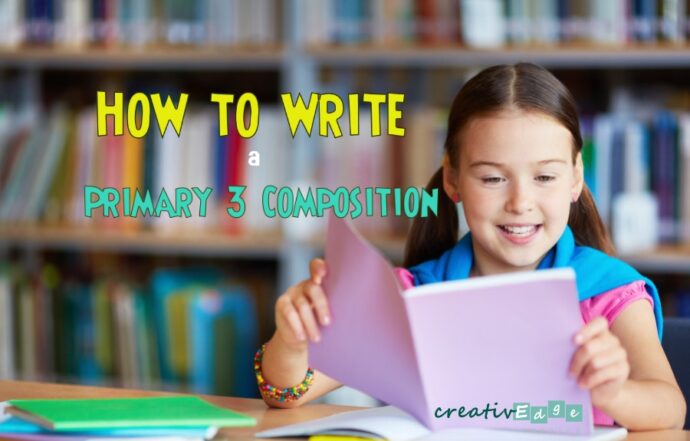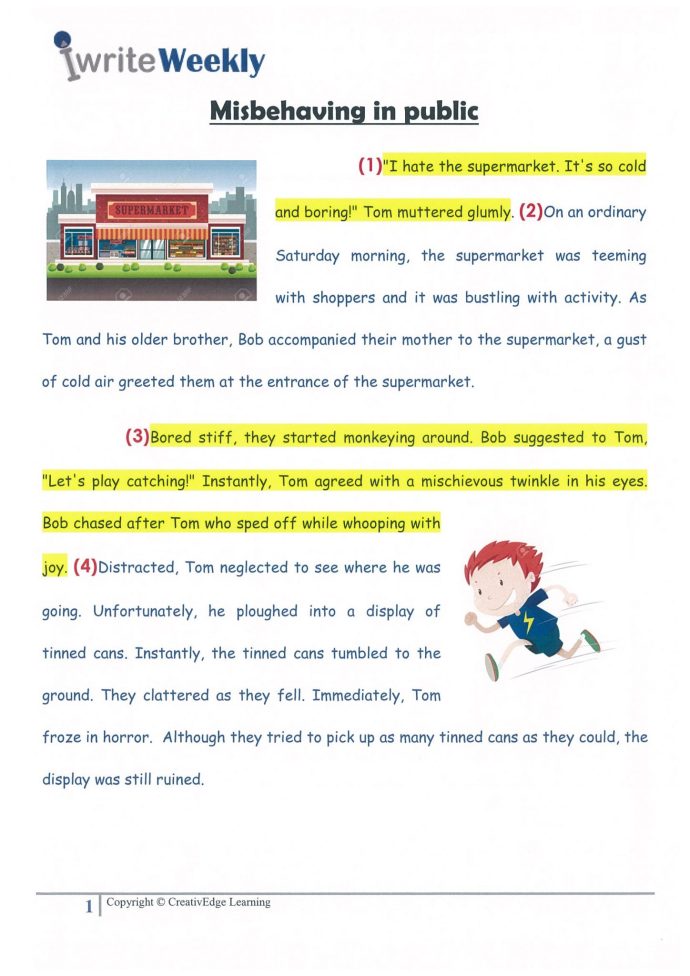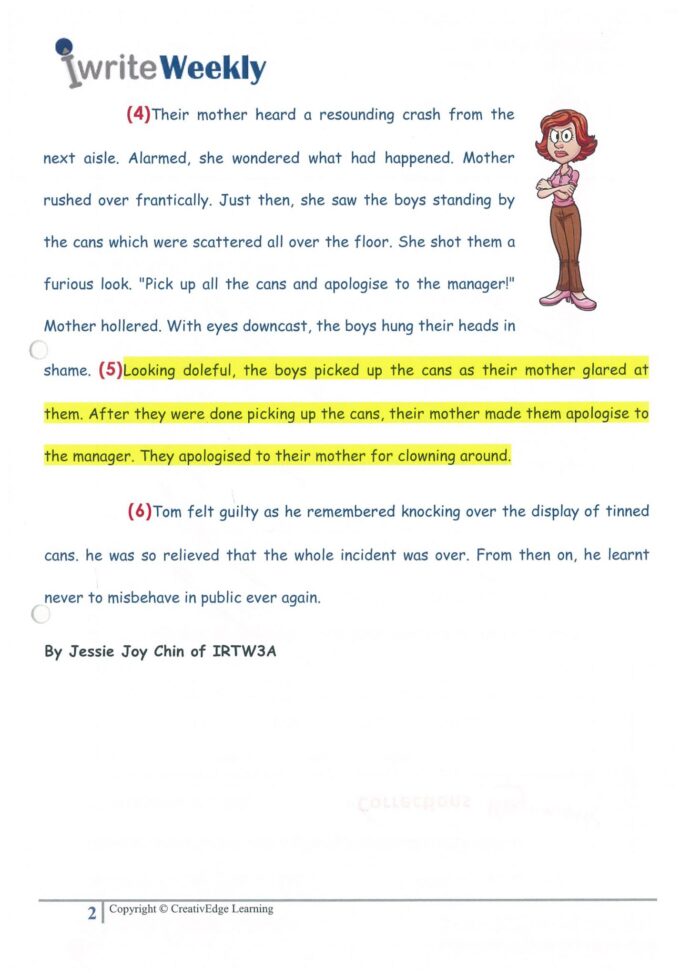
Key writing skills for Primary 3 composition
When pupils have difficulty writing a composition when they advance up to Primary 3. This is because the pictures often do not seem connected and there is also a title to take note of. However, pupils will find Primary 3 composition writing to be much easier by knowing the key writing skills necessary to form a story:
- Entertaining beginning
- Descriptive setting
- Starting of the story
- Memorable or exciting main event
- Solution
- Complete conclusion
Using a Primary 3 model composition written by one of our pupils, we will illustrate how the key writing skills are used to write a descriptive and sequential story.

Entertaining Beginning
It can be quite common for Primary 3 pupils to begin the story with a time-related sentence such as, “On a cheery Sunday morning” or a longer description of the setting.They also often write sounds such as “Yay!” or “Ring! Ring!” which are considered non-meaningful beginnings.
However, it is important for Primary 3 pupils to learn different and meaningful ways of writing the beginning.
One way of writing the beginning is to start with the main character’s speech or thought. It is a line of speech or thought as written from the main character’s perspective. This type of beginning pulls the reader right into the story hence it is considered more interesting.
2) Descriptive Setting
A descriptive setting shows the reader when and where the story took place. It is combined with an entertaining beginning to form the first paragraph of the story which is also known as the introduction.
It is important to include descriptive words such as “teeming” and “bustling with activity” in a descriptive setting. Otherwise, the setting will seem rather drab and boring to the reader. In addition , it loses its original purpose of painting a clear and vivid picture of the setting.
3) Starting of the story (also known as rising action)
This is the section right before the main event of the story. It includes the minor details leading to the main event. Such details are important as they close the story gaps, forming a complete story for the reader.

4) Memorable or exciting main event (also known as climax)
A memorable or exciting main event refers to the most memorable scenes of the story. It is a key writing skill as well as the most important part of the story.
To score for the composition exam, a pupil must write a logical, sequential and detailed main event. To do so, pupils should describein detail the chain of events that make up the story.
Pupils should also use specific action verbs such as those in the model composition – “monkeying”, “ploughed” and “whooped” . The marks for the language section is heavily dependent on the use of vocabulary words.
Besides the action, pupils should include the characters’ feelings in the main event too. Examples are “alarmed” , “eyes downcast” and “froze in horror”. This allows the reader to clearly relate to the characters’ feelings. In addition, vocabulary words for feelings contribute to the marks for the language section of the composition exam.
5) Solution
A solution refers to the ending of the incident or event. It forms the second last paragraph of the story. It is important to write a logical and concise solution without dragging the story for longer than necessary.
In this case, ending the story at the supermarket is appropriate. It is unnecessary for the boys to go home to receive a scolding.
6) Complete conclusion
A complete conclusion forms the very last paragraph of the story. It concludes the story with the main character’s final thoughts, feelings and decision based on the incident or event.
Effectively, this paragraph is not part of the incident or event. Rather, it is about the main character recalling the incident and then deciding what to do after the incident.
It is important to include a lesson that effectively sums up the story. This then clearly shows that the pupil is able to summarise the learning point of the story.
In this case, the title is “Misbehaving in public” hence it is ideal to address the behaviour in the conclusion.
Are you looking for a writing class which teaches your child the complete set of writing skills to form a logical and descriptive story? Contact us today to find out more.



